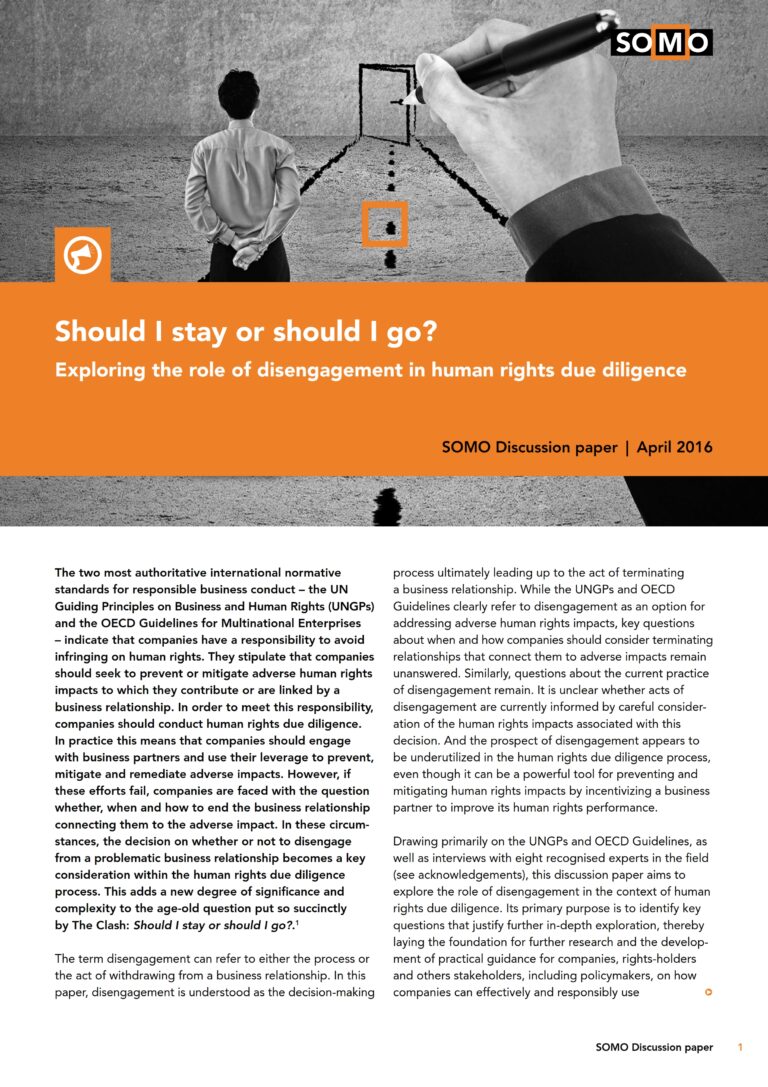
Should I stay or should I go?
The discussion paper ‘Should I stay or should I go’ (published by SOMO and Pax) has explored the role of disengagement in due diligence processes aimed at preventing, mitigating and remedying adverse human rights impacts.
The paper sought to identify key questions and provide a solid foundation for further research and the development of practical guidance for companies, rights-holders and others stakeholders, including policymakers, on how companies can effectively and responsibly use disengagement to prevent, mitigate and remediate adverse impacts.
The two most authoritative international normative standards for responsible business conduct – the UN Guiding Principles on Business and Human Rights (UNGPs) and the OECD Guidelines for Multinational Enterprises – indicate that companies have a responsibility to avoid infringing on human rights.
They stipulate that companies should seek to prevent or mitigate adverse human rights impacts to which they contribute or are linked by a business relationship. In order to meet this responsibility, companies should conduct human rights due diligence. In practice this means that companies should engage with business partners and use their leverage to prevent, mitigate and remediate adverse impacts.
However, if these efforts fail, companies are faced with the question whether, when and how to end the business relationship connecting them to the adverse impact. In these circumstances, the decision on whether or not to disengage from a problematic business relationship becomes a key consideration within the human rights due diligence process. This adds a new degree of significance and complexity to the age-old question put so succinctly by The Clash: Should I stay or should I go?
Download the paper Should I Stay or Should I go?
Do you need more information?
-

Joseph Wilde-Ramsing
Advocacy Director
Partners
Related content
-
Should I stay or should I go? Published on:
 Joseph Wilde-RamsingPosted in category:Publication
Joseph Wilde-RamsingPosted in category:Publication Joseph Wilde-Ramsing
Joseph Wilde-Ramsing
-
 CSDDD Datahub reveals law covers fewer than 3,400 EU-based corporate groupsPosted in category:News
CSDDD Datahub reveals law covers fewer than 3,400 EU-based corporate groupsPosted in category:News David Ollivier de LethPublished on:
David Ollivier de LethPublished on: -
 Additional evidence filed against Booking.com for profiting from illegal settlementsPosted in category:News
Additional evidence filed against Booking.com for profiting from illegal settlementsPosted in category:News Lydia de LeeuwPublished on:
Lydia de LeeuwPublished on:

